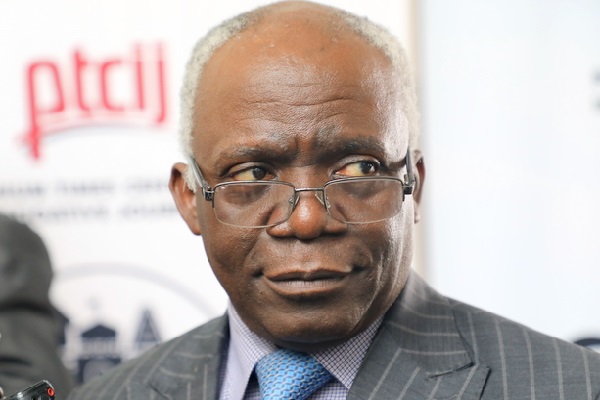Femi Falana, a leading Nigerian lawyer and human rights advocate, has harshly criticized the government’s handling of the nationwide protests against economic hardships and poor governance.
In a statement issued on Sunday, Falana accused the government of waging “a vicious campaign of blackmail and calumny” to undermine the valid grievances of the demonstrators.
“Instead of addressing the demands of the youths, the federal government and some state governments embarked on a vicious campaign of blackmail and calumny,” Falana said.
He also took issue with disparaging remarks from senior officials, including Senate President Godswill Akpabio, who reportedly said, “while you protest, we shall be eating,” and Vice President Kashim Shettima, who referred to the protesters as “idiots.”
Falana condemned the government’s measures to quell the protests, such as obtaining ex parte orders to limit protest locations and deploying thugs to disrupt demonstrations.
The statement detailed that Nigerian youths had planned protests against bad governance from August 1-10, 2024, presenting various demands to the government. Instead of addressing these demands, the federal and some state governments engaged in a “vicious campaign of blackmail and calumny,” accusing the youths of being manipulated by disgruntled politicians without evidence.
The Senate President’s comment, “while you protest, we shall be eating,” and Vice President Shettima’s description of protesters as “idiots,” were deemed provocative by Falana.
Efforts to prevent the protests included meetings with selected leaders, misleading withdrawals by fake groups, and the mobilization of thugs to either disrupt or stage counter-protests in support of the government, Falana said.
On the eve of the protests, Lagos, Ogun, and the Federal Capital Territory secured court orders to confine protesters to specific areas. Despite these orders not being formally served to organizers, the protesters complied and assembled in the designated locations.
Contrary to the government’s expectations, the protests were largely peaceful in many states. However, the media reported attacks by thugs and overzealous police officers, resulting in several deaths and injuries among protesters. Journalists were also harassed.
Falana criticized the police for failing to protect protesters and allowing thugs to cause chaos. He pointed out that some police officers, lacking proper equipment, resorted to using live ammunition.
The Chief of Defence Staff, General Christopher Musa, has threatened military intervention if the protests continue. Falana argued that such threats are illegal and unconstitutional, citing precedents that restrict military involvement in civil matters unless specifically mandated by law.
Falana also urged the federal and state governments to investigate the killings, provide compensation to the victims’ families, and ensure that peaceful protests are not criminalized. He called for a response to the protesters’ demands, particularly the reversal of the fuel subsidy withdrawal and a commitment to combat corruption in the oil sector.
He concluded by emphasizing that peaceful protests are a fundamental democratic right and criticized the government’s efforts to restrict this right, urging that Nigeria’s democracy be preserved and enhanced.




